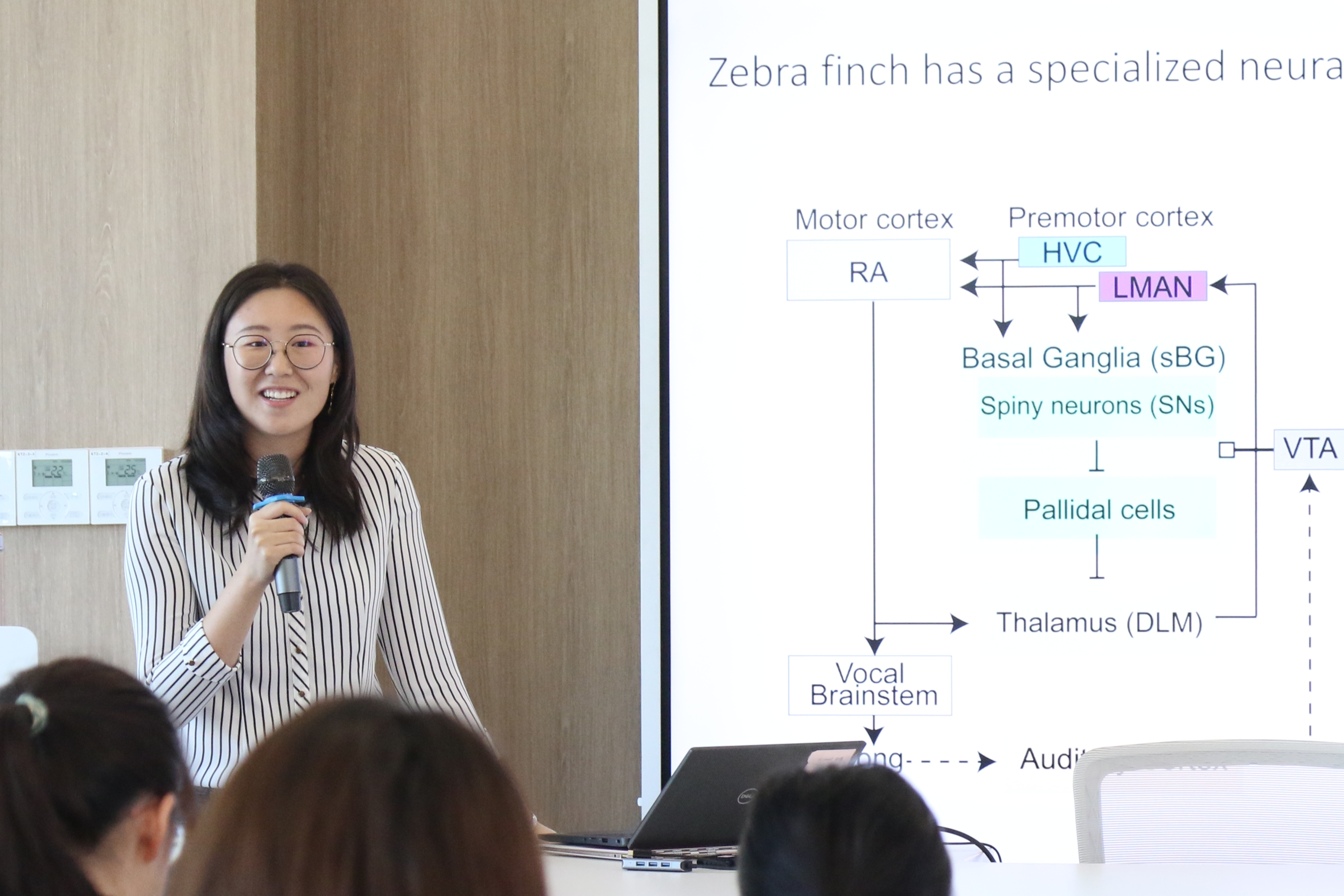On November 14, 2025, alumni Qi Jiaxuan (Class of 2017, Life Sciences) returned to Zhiyuan College, captivating students with a lecture on the neuroscience of birdsong and her philosophy on research.

"In this vast world, happiness matters the most. Research is not just about burying oneself in academics; it is about curiosity for the world, passion for knowledge, and love for life itself," shared Dr. Qi, whose genuine reflections sparked laughter and applause.
In her talk, Dr. Qi, now a postdoctoral fellow at the Howard Hughes Medical Institute and Princeton University, used zebra finches as a model to explain how birds master their songs through a self-motivated process of "listening-imitating-practicing-perfecting." Her research reveals that dopamine signals in the basal ganglia act as an "internal coach," precisely evaluating each singing performance. This process is finely regulated by cholinergic signals and dopamine neurons from the ventral tegmental area.
"We were the first to propose that this self-driven learning behavior is enabled by dynamic dopamine encoding in the basal ganglia," she explained. "This not only uncovers the secret of how birds learn songs but also provides a new perspective for understanding the acquisition of complex skills like human language and music."
During the Q&A session, Dr. Qi openly discussed challenges in research, encouraging students to seek support and not face pressures alone. Addressing career concerns, she advised, "The progress bar of life is long; there's no need to fast-forward," emphasizing the importance of enjoying the pure joy of learning. She also highlighted essential soft skills: strong communication, a solid command of English, and maintaining physical and mental well-being.

Profile : QI Jiaxuan
• Graduate of Zhiyuan College (Class of 2017, Life Sciences).
• Ph.D. in Neurobiology from Duke University.
• Currently a postdoctoral fellow at HHMI and Princeton, supported by the highly competitive Life Science Research Foundation Postdoctoral Fellowship.
• Published papers in top-tier journals including Nature, Neuron, and PNAS.
